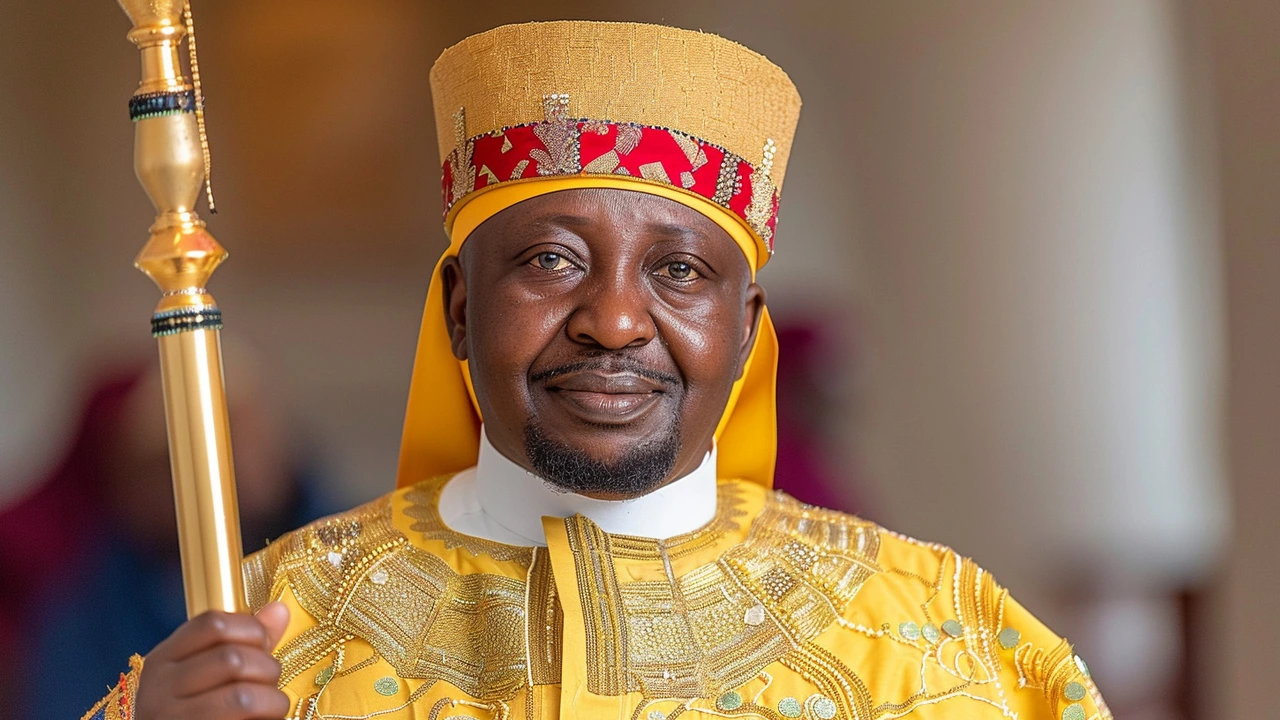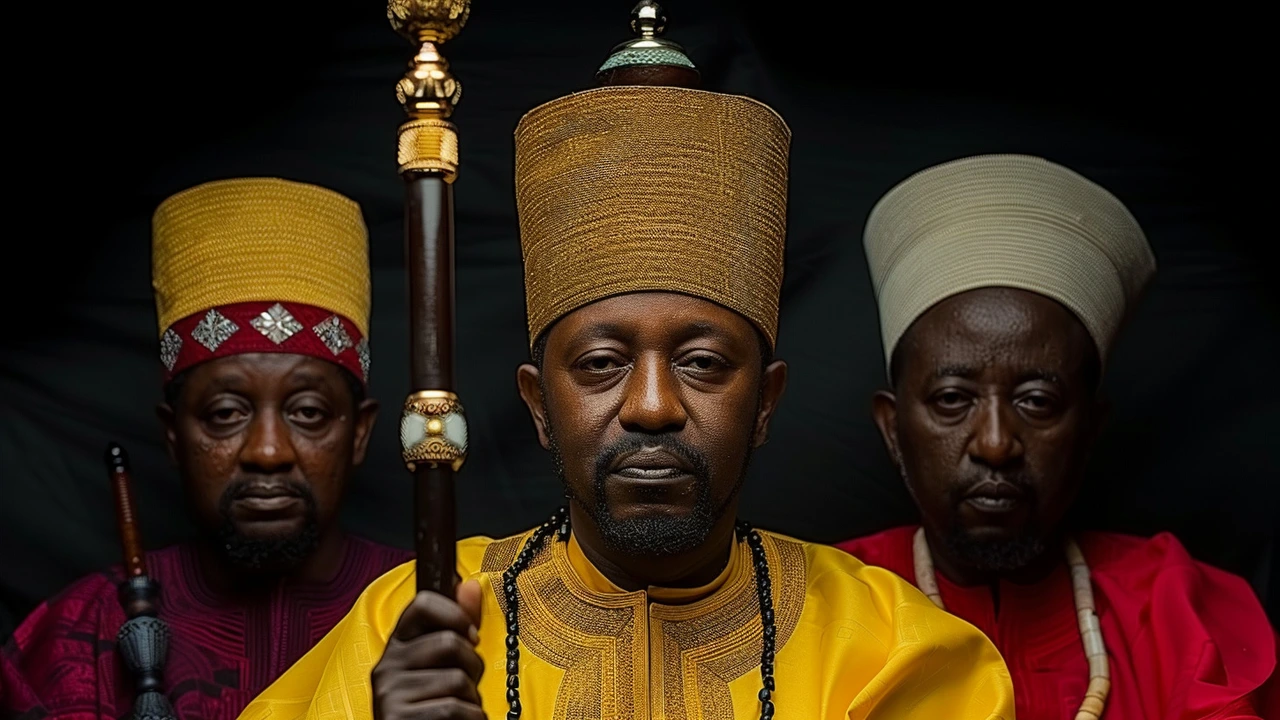 May, 28 2024
May, 28 2024
Federal High Court's Ruling on Kano Emirship Controversy
In a significant turn of events, the Federal High Court sitting in Kano has ordered the eviction of the reinstated Emir of Kano, Muhammadu Sanusi II, from the Emir’s Palace located in the historic Kofar Kudu area of Kano metropolis. The decision was handed down by Justice S. A. Amobeda, who presided over the case. The order follows an ex-parte motion filed by the deposed Emir of Kano, Aminu Bayero, leading to a landmark ruling that directs the police to enforce Bayero's rights and privileges.
Justice Amobeda’s ruling underscores the complex dynamics of the Kano Emirship controversy, a dispute that has seen its fair share of twists and turns. Sanusi's eviction from the palace not only reasserts Bayero’s claim but also emphasizes the court’s role in ensuring justice and the maintenance of peace within Kano State. The judge’s decision was clearly aimed at curbing any further escalation of the conflict, which has been a significant source of tension in the region.
The Clash of Emirs: Understanding the Background
The roots of this legal battle can be traced back to the controversial decision by the Kano State House of Assembly to repeal a law that previously created four new emirates in the state. This legislation had initially seen the appointment of Aminu Bayero as the Emir of Kano. This move was perceived by many as an attempt to dilute the influence of the traditional Kano Emirate. However, the repeal of this law led to the reinstatement of Muhammadu Sanusi II, unraveling a new chapter in the Emirship tussle.
Sanusi’s reinstatement was met with mixed reactions. While some saw it as a restoration of tradition and justice, others viewed it as a politically charged move that only served to deepen the existing rifts within Kano’s socio-political landscape. The eviction order issued by Justice Amobeda now adds another layer to this intricate saga, signifying ongoing battles for power and influence within the historic emirate.

Legal Implications and Future Proceedings
In addition to ordering Sanusi’s eviction, the court also issued significant directives to various law enforcement bodies, including the Nigeria Police Force, the Inspector General of Police, and the Commissioner of Police in the State. These bodies, along with seven other respondents named in the suit, have been instructed to ensure that Bayero is not denied the use of his official residence at the Emir’s Palace. Furthermore, the court’s decision stipulates that Bayero should enjoy all rights and privileges that are his due as the deposed Emir of Kano.
The court's decision has sparked extensive discussions among legal experts, scholars, and the Kano residents alike. The broader ramifications of this ruling raise questions about the balance of power and the role of traditional institutions in contemporary Nigerian society. Additionally, the decision to adjourn the case until June 4, 2024, for further hearing indicates that this controversial saga is far from over, as both sides prepare to present their arguments in the coming months.
Community Reactions and the Way Forward
The court’s ruling has undoubtedly stirred strong emotions within the Kano community. Proponents of Sanusi argue that his eviction is an affront to the justice and tradition that his reinstatement symbolized. On the other hand, supporters of Bayero herald the decision as a rightful correction of what they perceive to be an unjust and politically motivated reinstatement of Sanusi.
Amidst this backdrop, community leaders, elders, and political figures are calling for calm and restraint. The goal, they emphasize, should be the preservation of peace and the resolution of disputes through legal and democratic means. The significant role of traditional rulers in the social fabric of Kano cannot be overstated, and their influence extends beyond mere ceremonial duties into areas of conflict resolution, societal development, and cultural preservation.

A Historical Perspective on the Emirship of Kano
The Emirship of Kano is a historic institution that dates back several centuries. It holds a revered place in Nigeria’s rich tapestry of cultures and traditions. The role of the Emir transcends religious and cultural leadership, embodying the values and heritage of the Hausa-Fulani civilization. This position holds great influence not only in Kano but across Northern Nigeria.
Throughout history, the Emirship has seen various power struggles, reforms, and adaptations. These dynamics are often reflective of broader societal changes within the region. The current dispute between Sanusi and Bayero is yet another chapter in the storied history of this ancient throne. How it unfolds will likely shape the future of traditional leadership in Kano and impact the wider Nigerian socio-political framework.
Conclusion: What Lies Ahead
As the legal battle progresses and the community grapples with the implications of the court’s ruling, what remains paramount is the quest for peace and justice. The inhabitants of Kano and observers across Nigeria are keenly watching how this high-stakes drama will unfold. The June 2024 hearing will be a critical juncture in determining the future course of this dispute and, by extension, the evolving role of traditional institutions within the modern Nigerian state.
In the midst of all the legalities and politics, the voices of the people—who look up to the Emir for guidance and leadership—must not be forgotten. Their aspirations for a peaceful and prosperous Kano should be the guiding principle as all stakeholders navigate this complex journey. The emphasis must be on fostering harmony, upholding justice, and ensuring that the rich cultural heritage of Kano continues to thrive amidst changing times.

Larry Keaton
May 28, 2024 AT 23:33Yo, this court order is a total game‑changer for Sanusi, he’s finally gettin’ the boot.
Liliana Carranza
May 28, 2024 AT 23:43It’s heart‑warming to see the justice system stepping in to protect tradition and the rights of the rightful Emir. The community has been on edge, and this decision gives many a sigh of relief. Sanusi’s brief resurgence sparked intense dialogue about modernity versus heritage, and now the pendulum swings back. It reminds us all that legal channels, not street protests, should shape our societal evolution. I’m hopeful the peace talks that follow will be constructive and inclusive. Let’s keep the conversation alive, focusing on unity and progress.
Jeff Byrd
May 28, 2024 AT 23:45Sure, because court orders magically solve deep‑rooted cultural rifts-next they’ll be handing out medals for “Best Peacekeeper”. I guess we’ll just wait for the next drama episode in Kano.
Joel Watson
May 28, 2024 AT 23:58The recent judgment rendered by the Federal High Court constitutes a pivotal juridical intervention in the protracted Kano emirate dispute. It reaffirms the principle that statutory authority, rather than personal ambition, must undergird the legitimacy of traditional rulership. By directing law‑enforcement agencies to uphold the rights of Emir Aminu Bayero, the court seeks to restore constitutional order within the region. Moreover, the ruling delineates a clear boundary between political maneuverings and the enduring customs that define Hausa‑Fulah governance structures. Historically, the emirate has served as both a cultural custodian and a mediator of communal grievances, rendering any abrupt alteration to its leadership a matter of profound sensitivity. The eviction order, therefore, is not merely a procedural directive but a statement reinforcing the continuity of established hierarchies. In parallel, the injunction underscores the judiciary’s capacity to arbitrate disputes that intersect with both modern state mechanisms and age‑old tribal frameworks. It is noteworthy that the court has scheduled a further hearing for June 2024, indicative of its intent to monitor the implementation of its decree. This anticipatory approach may deter future encroachments upon the emir’s domicile and preserve the sanctity of the palace as a symbol of stability. Critics, however, argue that the decision could exacerbate factional tensions if perceived as overtly partisan. Nonetheless, the docket’s emphasis on legal recourse suggests a preference for mediated resolution over street‑level confrontation. The broader implication is a reaffirmation that traditional authority must coexist with, rather than be eclipsed by, contemporary state institutions. As such, the court’s action may serve as a template for resolving analogous disputes across other Nigerian emirates. Ultimately, the efficacy of this ruling will be measured by the degree of peace it engenders within Kano’s civic fabric and its resonance with the populace’s expectations of justice. It remains imperative that all stakeholders honor the principle of due process, thereby safeguarding both the rule of law and the cultural heritage embedded within the emirate.
Chirag P
May 29, 2024 AT 00:00I respect the court’s attempt to bring order, but we must also acknowledge the emotional toll on the community. Assertively, I urge all parties to engage in dialogue that honors both legal outcomes and cultural sensitivities. The path forward should involve inclusive consultations, ensuring that the verdict translates into lasting peace. Only then can the historic legacy of Kano’s emirate truly thrive.
RUBEN INGA NUÑEZ
May 29, 2024 AT 00:06The judgment is crystal‑clear: the law overrides individual ambition, and anyone attempting to subvert it will face decisive consequences. It is imperative that law‑enforcement execute the eviction without delay, preserving the integrity of the court’s authority. This is not a negotiation; it is a firm assertion of legal supremacy. All stakeholders must comply, or risk undermining the very foundation of our judicial system. Let the process be swift and unequivocal.
Michelle Warren
May 29, 2024 AT 00:23Idk why ppl keep blowin up over this, its just another court sitch . maybe they should focus on real issues .
Christopher Boles
May 29, 2024 AT 00:33Let’s stay positive and keep supporting peaceful solutions. Together we can help Kano move forward with hope.